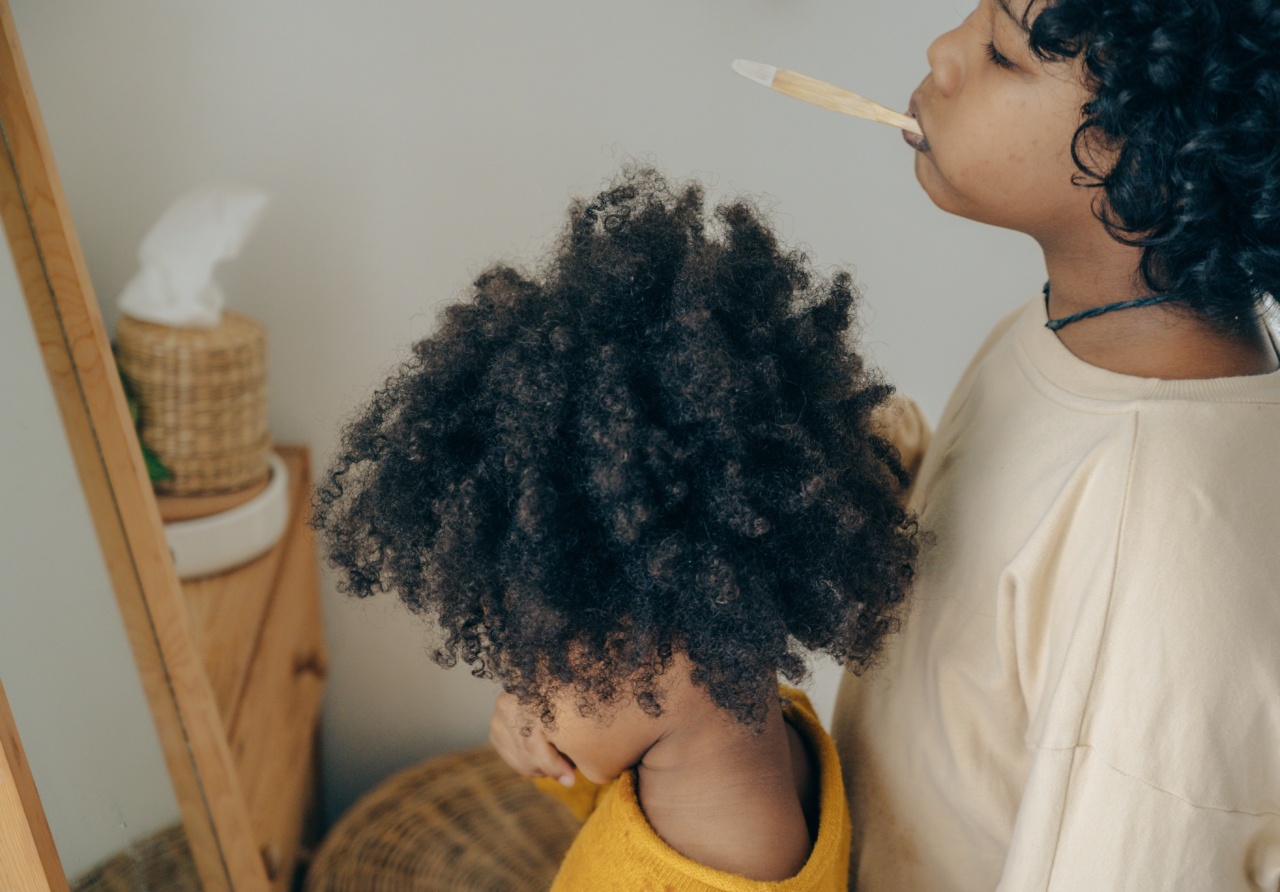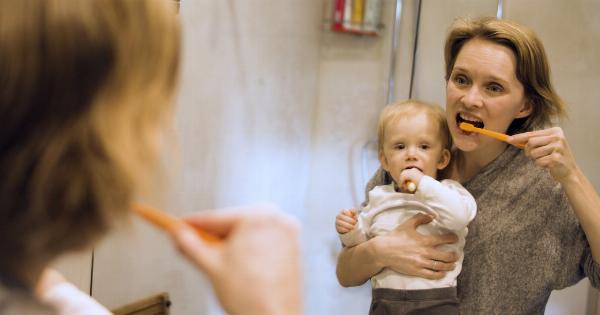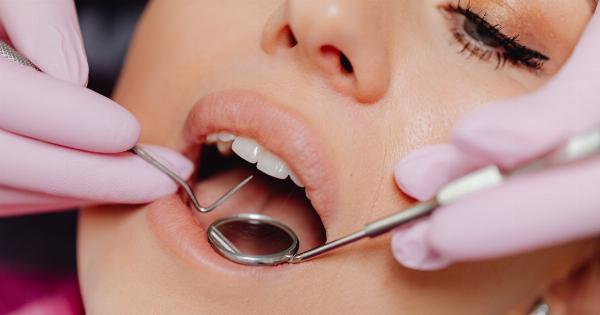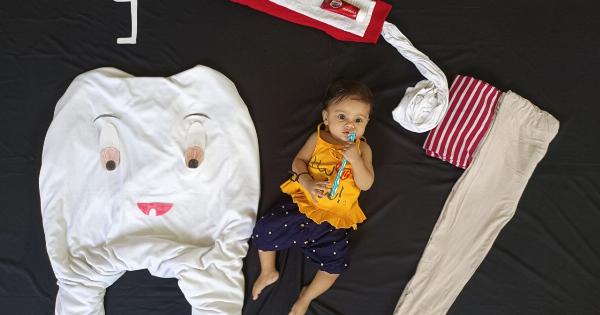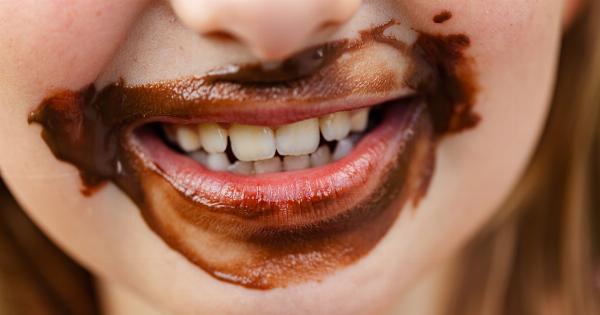As a parent, you are constantly observing and studying your baby’s development. From their first steps to their first words, every milestone is exciting and filled with joy.
One aspect of your baby’s development that often goes unnoticed is their teeth. However, a baby’s teeth can actually provide valuable insight into their overall health and wellbeing.
In this article, we will explore what your baby’s teeth can tell you about their wellbeing and why it is important to pay attention to their dental health.
1. Timeline of Baby Teeth
The development of baby teeth follows a specific timeline. Understanding this timeline can help you track your baby’s development and identify any potential issues. On average, babies start teething around 6 to 10 months of age.
The first teeth to erupt are usually the lower central incisors, followed by the upper central incisors. This is followed by the lateral incisors, first molars, canines, and finally the second molars. By the age of three, most children have a full set of baby teeth.
2. Healthy Teeth, Healthy Baby
Healthy teeth play a crucial role in your baby’s overall wellbeing. Here are some ways in which your baby’s teeth can impact their health:.
- Nutrition: Healthy teeth are necessary for proper chewing of food, which aids in digestion. If your baby has dental pain or discomfort, they may avoid certain foods, leading to a restricted diet.
- Speech development: Teeth are essential for clear speech development. Without proper alignment of teeth, your baby may have difficulty pronouncing certain sounds.
- Self-esteem: As your baby grows, their smile becomes an essential part of their self-esteem. Healthy teeth can boost their confidence and promote a positive self-image.
- Overall health: Poor dental health in babies has been linked to various health issues, including cardiovascular problems and respiratory infections.
3. Signs of Dental Problems
It is essential to be aware of the signs that may indicate dental problems in your baby. Some common signs include:.
- Delayed teething: If your baby’s teeth are not developing within the expected timeline, it could indicate a problem.
- Discolored teeth: Teeth that appear yellow, brown, or pitted may indicate tooth decay or enamel issues.
- Persistent pain or discomfort: If your baby seems to be in pain while chewing or shows signs of discomfort, it is crucial to seek dental evaluation.
- Difficulty in eating or feeding: If your baby is avoiding certain foods or has difficulty eating, their dental health could be a contributing factor.
- Unpleasant breath: Persistent bad breath despite regular oral care may indicate a dental problem.
4. Dental Care Tips
Proper dental care right from the start sets the foundation for a lifetime of healthy teeth. Here are some dental care tips for your baby:.
- Cleaning: Even before teeth appear, it is important to clean your baby’s gums with a soft cloth or infant toothbrush.
- First tooth: As soon as the first tooth erupts, start brushing using an age-appropriate toothbrush and a smear of fluoride toothpaste.
- Regular dental check-ups: Schedule regular dental visits for your baby to identify any potential issues and ensure proper dental care.
- Healthy diet: Provide a well-balanced diet rich in fruits, vegetables, and dairy products to promote strong and healthy teeth.
- Avoid sugary drinks and snacks: Limit your baby’s consumption of sugary foods and drinks to prevent tooth decay.
5. Teething Troubles
Teething can be a challenging phase for both babies and parents. It is important to know how to soothe your baby during this time. Some tips to alleviate teething discomfort include:.
- Gently massage your baby’s gums with a clean finger.
- Offering a chilled teething ring can provide relief from pain and discomfort.
- Using a damp washcloth to rub on your baby’s gums can be comforting.
- Distraction through play or soothing activities can divert your baby’s attention from teething discomfort.
- Natural remedies such as chamomile tea or homeopathic teething tablets may also be helpful, but consult your pediatrician before trying any alternative methods.
6. Dental Emergencies
While dental emergencies are rare in babies, it is crucial to be prepared in case they occur. Here are some common dental emergencies and what to do:.
- Knocked-out tooth: If your baby’s tooth gets knocked out, gently rinse it with clean water and try to place it back into the socket. If not possible, keep it in a clean container with milk or saliva and seek immediate dental attention.
- Chipped or fractured tooth: Rinse your baby’s mouth with warm water and apply a cold compress to reduce swelling. Seek dental evaluation as soon as possible.
- Toothache or abscess: Clean the affected area with warm water and use a cold compress to reduce pain and swelling. Contact your dentist for an emergency appointment.
7. Importance of Early Dental Visits
The American Academy of Pediatric Dentistry recommends that babies should have their first dental visit by their first birthday or within six months after their first tooth eruption. Early dental visits are essential for:.
- Preventive care: Regular dental check-ups can identify potential issues early on and prevent dental problems in the future.
- Educating parents: Dental professionals can guide parents on proper oral care techniques and answer any questions or concerns.
- Establishing a dental routine: Early dental visits help familiarize your baby with the dental office environment and establish a positive dental routine right from the start.
8. Dental Hygiene for Older Babies
As your baby grows older, their dental care routine will evolve. Here are some additional dental hygiene tips for older babies:.
- Continue brushing your baby’s teeth twice a day with a rice grain-sized amount of fluoride toothpaste.
- Teach your baby how to spit out toothpaste after brushing, but avoid rinsing with water to ensure the fluoride remains on their teeth.
- Introduce dental flossing when the teeth start to touch each other.
- Encourage your baby to drink water after meals to help wash away food particles that can lead to tooth decay.
- Limit the use of sippy cups and encourage drinking from a regular cup to prevent prolonged exposure to sugary liquids.
9. Regular Oral Care and Beyond
As your baby transitions into toddlerhood, it is important to continue prioritizing their dental health. Here are further steps to maintain good oral hygiene:.
- Regularly replace your baby’s toothbrush every three to four months or sooner if the bristles become frayed.
- Encourage your child to brush their teeth independently, but supervise to ensure they are effectively cleaning all surfaces.
- Schedule regular dental check-ups every six months to monitor your child’s dental health and address any concerns.
- Teach your child the importance of dental hygiene and encourage healthy habits such as eating a balanced diet and avoiding excessive sugary snacks.
- Lead by example and maintain good oral hygiene yourself to show your child the importance of taking care of their teeth.
Conclusion
Your baby’s teeth are not just adorable little pearly whites but also vital indicators of their well-being.
Monitoring the development and ensuring proper dental care can help prevent potential issues, promote good oral hygiene, and support your child’s overall health. Take the time to brush, floss, and schedule regular dental visits, as these habits will set the stage for a lifetime of healthy smiles.
